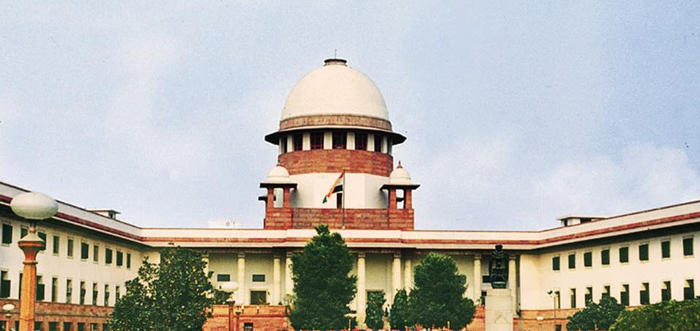New Delhi: The manner in which the sexual harassment case against the Chief Justice of India (CJI) Ranjan Gogoi has been handled has evoked sharp criticism from a large number of eminent people. They have said that proper regulations have not been followed and it has damaged the image of the judiciary.
It should be stated here that in 2014 the CJI, then a Judge, was part of the Supreme Court bench which heard a sexual harassment case filed by a law intern against then National Green Tribunal chairman Justice Swatanter Kumar. The two others comprising the bench were the then CJI, P Sathasivam and Justice Shiva Kirti Singh.
During the hearing, the bench rued the fact that there was no mechanism to deal with cases of sexual harassment filed against sitting judges. The bench then formed a committee comprising senior advocates Fali Nariman and PP Rao to frame rules for handling such incidents. The two then suggested to the CJI that a panel of sitting SC judges must be formed to look into allegations of sexual misconduct against any ‘brother’ judge. They had also contended irrespective of the position any judge held, they cannot be treated as immune from charges of sexual harassment at work place.
Cut to 2018. What has CJI Gogoi done when he has been accused of sexual misconduct? His actions have surprised all. When the allegations became public April 20, CJ Gogoi could have easily applied the same recommendations that were done in the case against Justice Kumar. But he did not do that. Instead, in spite of the court being closed on theday (Saturday), the CJI made the unprecedented move of convening an ‘urgent hearing of a matter of great public importance’. He formed a special bench headed by himself with Justices Arun Mishra and Sanjiv Khanna. Was he right in doing that, heading a bench pertaining to a case against him, activists have asked.
The activists have also claimed that by discrediting the accuser and by issuing statements like ‘bigger plot to deactivate the office of the CJI’ and ‘attack on the independence of judiciary’, the CJI has not followed the due course of law. They have said that the CJI shouldn’t have made such statements without even a preliminary probe.
Two former CJIs have also not supported the way CJI Gogoi has acted. According to them the present CJI could have issued a strong statement instead of dragging the Supreme Court into his own personal matter. One of them has said that CJI Gogoi has completely derailed the due course of law.
It should be mentioned here that it was the Supreme Court in 1997 which had framed the ‘Vishakha Guidelines’ to deal with sexual harassment of women at the workplace. Eminent people are now asking whether the SC sees the judiciary above scrutiny. The apex court is yet to formalise rules based on the recommendations made by Nariman and Rao in 2014. They argue that it has not been done as the judiciary probably thinks itself above the law.
It should also be noted that the Supreme Court currently has an ‘Internal Complaints Committee’, to deal with cases of sexual harassment slapped against employees of the court and law officers, but it has no jurisdiction over sitting or retired judges. The panel is headed by Justice Indu Malhotra.
The three-member inquiry panel formed to deal in the CJI Gogoi case will have to keep a lot in the mind when they conduct their probe. The panel is headed by Justice SA Bobde with the others being Justices Malhotra and Indira Banerjee. To a certain extent their actions may be a pointer to the way sexual harassment cases against sitting and retired SC judges should be dealt with.



